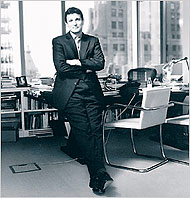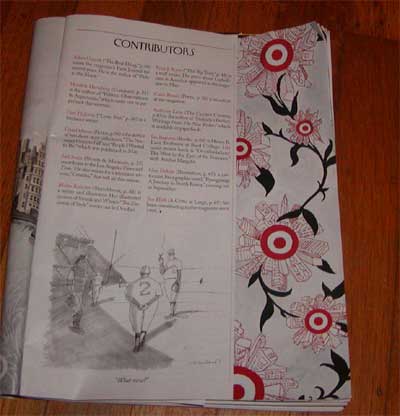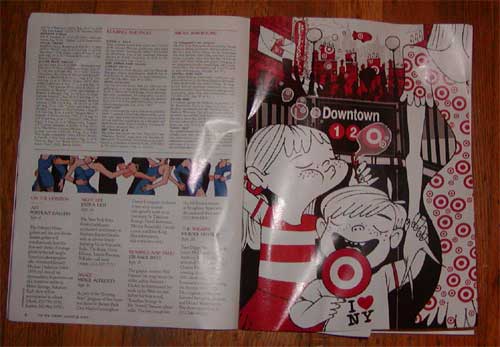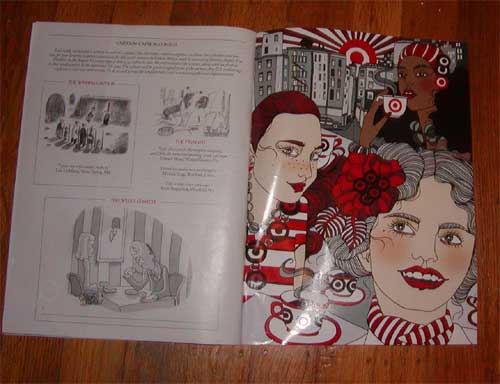Last year, the New York Review of Books had the bright idea of commissioning Nicholson Baker to write an exuberant essay about Wikipedia. Beginning with the simple sentence, “Wikipedia is just an incredible thing,” Baker’s piece went on to chart his participation and subsequent obsession with the well-known website. Baker expressed his genuine horror at cavalierly deleted articles and depicted the many communal surprises he found along the way. It was a journey of self-discovery that permitted many who had used Wikipedia to rediscover the collective pixie dust selflessly sprinkled in the pursuit of knowledge. The essay was widely cited and linked. Here was the man who had once tapped his life savings to preserve newspapers now mining unexpected nuggets from a rich digital deposit. And Baker, under the moniker “Wageless,” continued with his Wikipedia contributions for some months after the article had been published.
Fast forward to today, with The New Yorker — a publication that not a single writer can afford to say no to — commissioning Nicholson Baker to write about the Kindle. But where The New York Review of Books managed to subvert expectations, the New Yorker has applied a marketing team’s craven predictability, with Baker corrupting his voice in the process. Baker’s essay is laden with cheap shots and clumsy generalizations. He’s not interested in seeing the bigger picture, even as he attempts some slapdash journalism when talking with Russ Wilcox on the phone. I’ll defer to Teleread’s Robert Nagle for Baker’s gross technological oversights. The more troubling betrayal here — one I hope that is merely temporary — is that the man who once unapologetically expressed his passion about John Updike, Wikipedia, and the use of “lumber” is nowhere to be found in this piece. He has been replaced by a brazen elitist who — in this essay at least — is closer to Lee Siegel in temperament than the man who once wrote gently and eloquently about card catalogs, or the writer who has devoted his career asking us to find the magic within the quotidian. The man who has subtly beseeched us to commiserate with the lonely and misunderstood people toiling in offices and talking on phone sex lines has momentarily transformed into a cavalier ruffian who scoffs at regular people for having the temerity to express their enthusiasm on Amazon and who likewise suggests that all blogs are “earnest and dispensable.” (That last comment echos a regrettable stance that can also be found within an inexplicably meanspirited passage from Baker’s forthcoming novel, The Anthologist: “You have to hand it to those podcasters. They keep on going week after week, even though nobody’s listening to them. And then eventually they puff up and die.”)
For a writer who has been so careful with his sentences, it’s astonishing to see Baker capitulate like this.
I’d be willing to accept Baker’s assaults on Jeff Bezos and the authors who appeared in the Kindle promotional video if Baker wasn’t so fixated on kicking down the average Joe like this. If Baker is going to go after Michael Lewis, Toni Morrison, and Neil Gaiman, then you’d think that he’d cop to the fact that he’s betrayed his own endearing populism for the New Yorker‘s lucrative word rate and prestige. (It should be observed that this is Baker’s first appearance in the New Yorker in nine years.)
The essay’s apologists will probably point to Baker’s defense of the iPod Touch (via Eucalyptus, ScrollMotion, and Stanza) later in the essay as a pro-technology concession. But aside from Baker’s inherently subjective position (indeed, one that doesn’t seem to consider other viewpoints), there’s Baker’s more troubling elision of class. How many unemployed types can afford either a Kindle 2 or an iPod Touch (costing $70 less than the Kindle 2) right now? Oh yeah. Baker hasn’t bothered with that. I guess one of the deals you make when you now sign on to write for the New Yorker is to act as if any thinking or feeling individual making under $30,000 a year doesn’t exist. Or that anybody who puts long hours into a blog or a podcast, or who uses a Kindle to read, can’t possibly be of societal value.
That’s a far cry from the man who once celebrated the “strangers who disagreed about all kinds of things but who were drawn to a shared, not-for-profit purpose” and who marveled at the capacity for people to build grand things with merely a keyboard and a desire to help. I hope that the old Baker comes back. But this new guy who can’t be bothered to laugh at a wasp passage because it appears on a screen? He sounds like a guy at a house party who can’t laugh at the Seth Rogen movie because it’s not playing in a movie theater.
[UPDATE: I will let this article stand unmodified and uncorrected as a reflection of how I felt at the time. But after some thought, I believe that I jumped to several needless conclusions, some of which have been cleared up by Nicholson Baker himself in the comments. (This update, incidentally, is not motivated by Baker’s appearance. I should point out that I was all set to respond to several comments before he arrived. But propinquity being what it is, the timing has worked out accordingly.) The upshot is this: I suspect that the rather grumpy tone of this article came about because I wrote it just after coming off a particularly terrible six-hour bus ride spearheaded by an unpleasant authoritarian driver who was screaming at random passengers and who did not know how to drive. My girlfriend and I, both in the early leg of this rather hellish journey, had acquired the article through email and read it on a cell phone. Perhaps these reading conditions prove Nick Baker’s point that the medium and the circumstances in which one reads can indeed factor into how one perceives the article, I detected several sentences as troublesome, interpreting them in an emotional way. I presented my findings in rather persuasive terms to my girlfriend, who was somehow persuaded. (I have a regrettable tendency to be able to persuade people of things even when I am wrong.) And the writing of this post occurred not long after we finally decamped from the raving lunatic driving the bus. I still believe that Baker should have used his writing talent for more enthusiastic purposes, but it was wrong of me to suggest some Svengali-like collusion between Baker and Remnick.]
 Benjamin Cohen
Benjamin Cohen 



